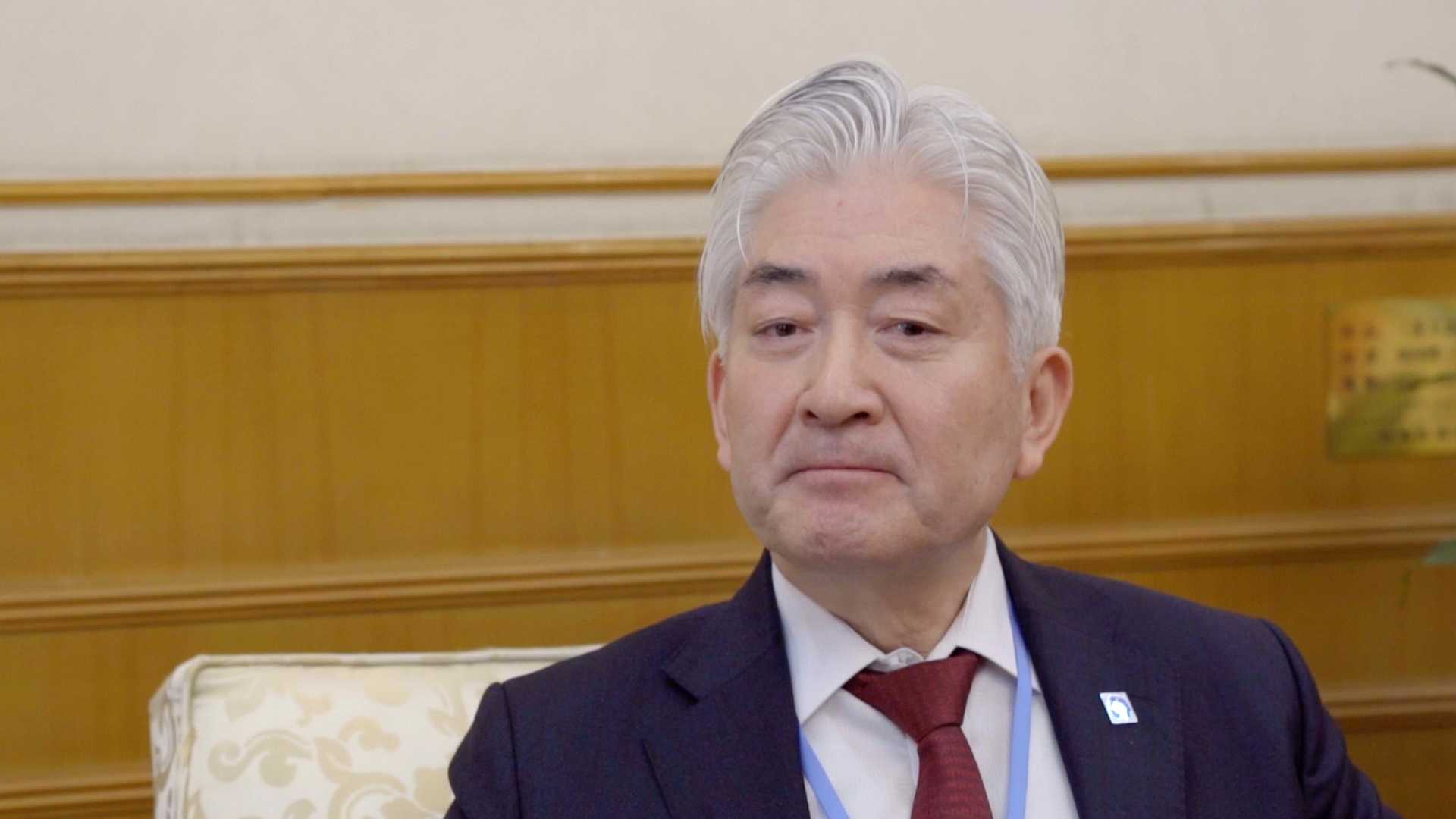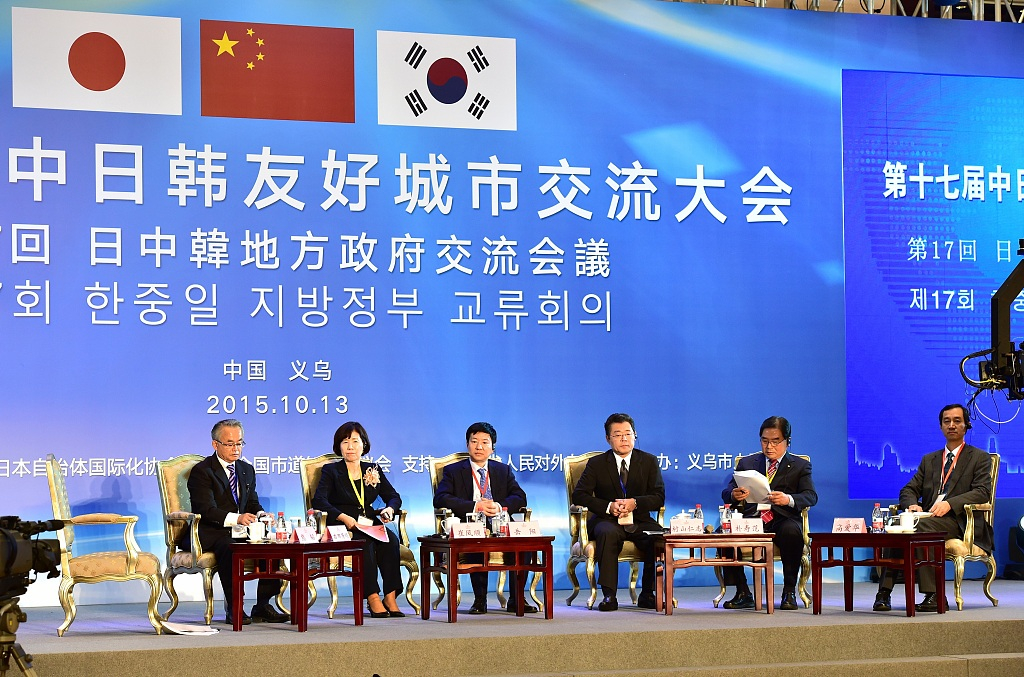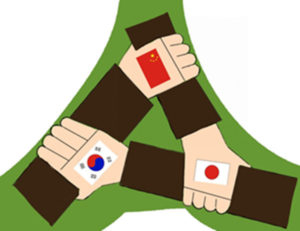
Asia Pacific
18:31, 12-May-2019
Will positive power prevail over downside in Northeast Asian cooperation?
Updated
09:50, 13-May-2019
By Zeng Ziyi
06:11

This year marks the 20th anniversary of the trilateral cooperation among China, Japan and the Republic of Korea (ROK). Born out of the ASEAN Plus Three, the cooperation among the most affluent Northeast Asian nations has evolved into an extensive cooperation mechanism. The Trilateral Cooperation Secretariat came into being in 2011 to govern the collaboration on a fluid global landscape.
At the opening ceremony of the International Forum for Trilateral Cooperation 2019 in Beijing on Friday, Chinese State Councilor and Foreign Minister Wang Yi talked about the steady progress that has been achieved in the cooperation. A total of 21 ministerial meetings and over 70 working-level consultations have been working closely on a land blighted by historical disputes and modern-day conundrums.
CGTN reporters sat down with the Secretary-General of the Trilateral Cooperation Secretariat, Lee Jeong-heon (Lee), to discuss issues ranging from China's Belt and Road Initiative (BRI) to the Korean Peninsula scenario.
CGTN: What do you think of China's concept of building "a community with a shared future for mankind"? Can it will help promote trilateral cooperation among the three nations?
Lee: China announced the highly ambitious vision of the "Silk Road Economic Belt" and the "21st-Century Maritime Silk Road." I believe that it aims to synergize development strategies of various countries and strengthen international cooperation for shared prosperity in Asia, Europe and beyond. The ROK is also pursuing its own Northeast Asia-plus community of responsibility, New Southern Policy, and recently, East Asia Railway Community. Japan has deployed its own global diplomacy and Indo-Pacific strategy.
I sincerely hope that the three countries can eventually formulate some common, grand strategy by complementing each other to maximize their great potential, yet to be tapped, to the fullest. I also hope that this kind of joint and concerted effort will help to fill the missing link in the Belt and Road Initiative by extending to both (South) Korea and Japan.

The 17th Exchange Conference of Friendship Cities among China, Japan and Korea in Yiwu, east China's Zhejiang Province, October 13, 2015. /VCG Photo
The 17th Exchange Conference of Friendship Cities among China, Japan and Korea in Yiwu, east China's Zhejiang Province, October 13, 2015. /VCG Photo
CGTN: You once mentioned top-down, bottom-up approach to beefing up the trilateral cooperation, could you elaborate on that?
Lee: I believe that in order to push forward the trilateral cooperation in a sustainable way, we need a top-down approach, as well as a bottom-up approach. As far as the top-down approach is concerned, if you look at the map of the Northeast Asia region, we realize that this region has never experienced a permanent multilateral consultative mechanism, not only to deal with issues of common interest, but also to address recent conflicts among neighboring countries.
Without the political support and commitment from top leaders, it is really difficult to maintain the momentum for trilateral cooperation. As far as the bottom-up approach is concerned, as you know, the three countries are located very closely to each other. Due to this kind of geographical proximity, and common cultural background, people have gotten closer and closer.
The last 20 years have witnessed more people-to-people, social and cultural exchanges, as well as economic interdependence. Nobody can stop this kind of trend. I believe that in order to take trilateral cooperation one step further, it is necessary to combine this "top-down, bottom-up" approach.
CGTN: The aggregate GDP of China, Japan and the ROK accounts for around 90 percent of that of Northeast Asia, exceeding that of the EU. But their economic integration level is far lower than that of the EU. What are the main factors preventing them from integrating? Do the history of regional wars and territorial disputes still play a significant role in this?
Lee: As everything has a dark and a bright side, I believe that the trilateral cooperation also has two aspects. As far as the positive side is concerned, geographical proximity, cultural similarity, and some necessity for cooperation (exist), because they are very close to each other. When something happens in one country, the other two countries can be affected. As far as the negative side is concerned, such as historical issue, territorial dispute, but fundamentally they are due to different geopolitical perspectives, strong sense of rivalry, or hegemony power struggle in this region.
When we compare the positive and negative forces at this moment, we have to admit that unfortunately, the negative forces prevail over the positive. But we should not be discouraged so much, because the positive forces are very resilient and irrevocable. So when we continue to accumulate the positive forces, and some day transcend this positive force, making paradigm shift possible, some day (we can move from) mistrust and confrontation to trust and cooperation.

VCG Photo
VCG Photo
CGTN: It seems that China, the ROK and Japan can cooperate only in the economic realm given that Tokyo and Seoul are under Washington's nuclear umbrella. So to what extent can they cooperate in trade? Is an FTA feasible?
Lee: The three countries are working very hard to conclude FTA negotiations as soon as possible. The ultimate goal of successfully concluding trilateral FTA is to achieve really comprehensive, mutually beneficial, and high-level (result). But the three countries have different perspectives depending on the development of their economy. Recently, the three countries completed 15 rounds of negotiations. So it may take time but the three countries will eventually conclude the long-standing negotiations.
CGTN: Can the three countries find a way to address the decades-long conundrum on the Korean Peninsula?
Lee: It is really amazing to witness how the security environment in Northeast Asia surrounding the Korean Peninsula has shifted in such a short period of time, from a highly possible military confrontation to a peaceful dialogue and reconciliation process.
Some pessimists or down-to-Earth realists tend to focus on the denuclearization process, saying that the devil is always in the details. The optimists believe that sooner or later, they are going to establish peace on the Korean Peninsula. So it is necessary to harmonize these different perspectives. We should be the realistic-optimists. We should not lose sight of the big picture. The ultimate goal of trilateral cooperation is to achieve peace, stability and prosperity among the three countries and beyond.
Reporters: Wang Xiaonan, Zeng Ziyi
Videographer and video editor: Zeng Ziyi

SITEMAP
Copyright © 2018 CGTN. Beijing ICP prepared NO.16065310-3
Copyright © 2018 CGTN. Beijing ICP prepared NO.16065310-3